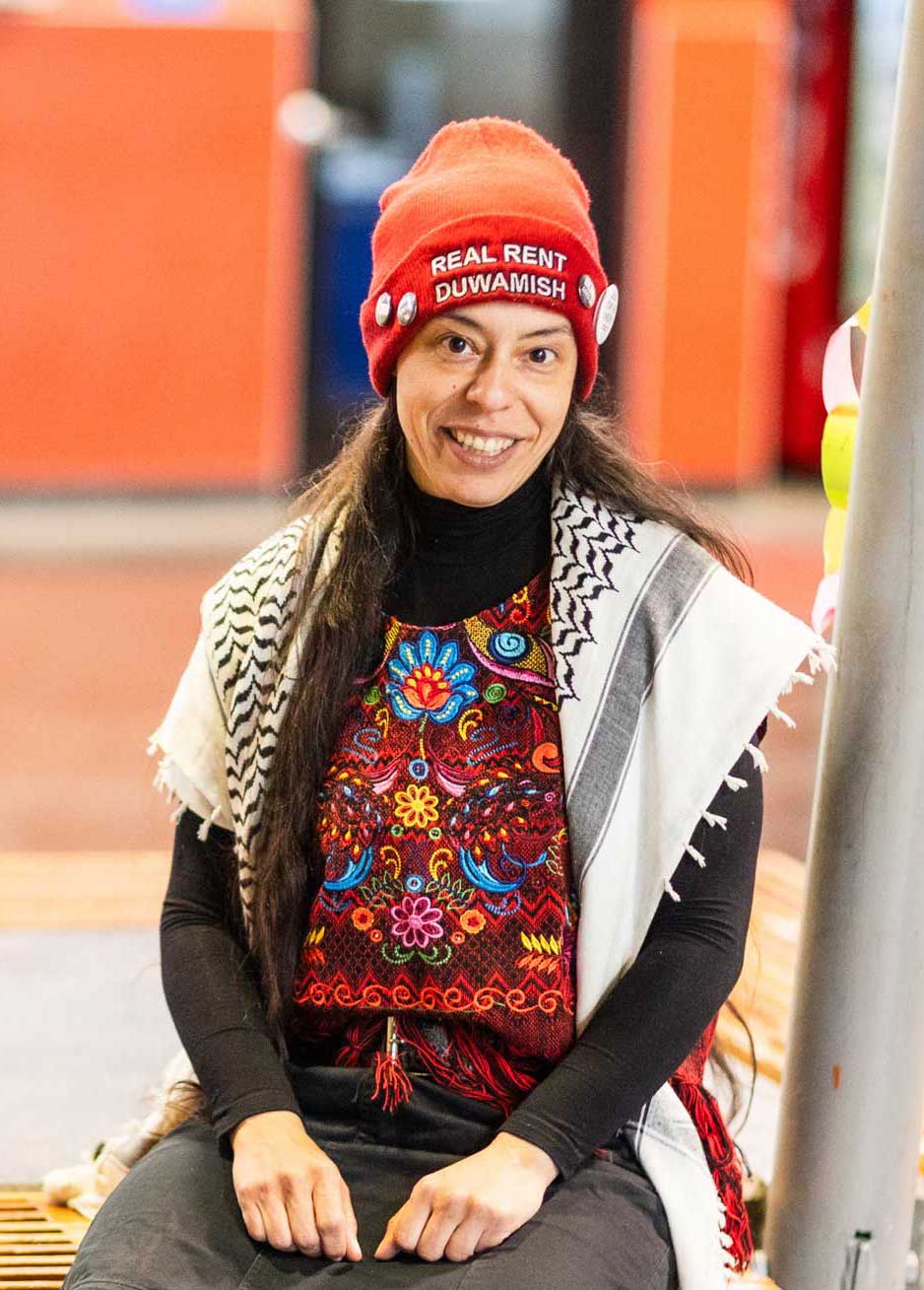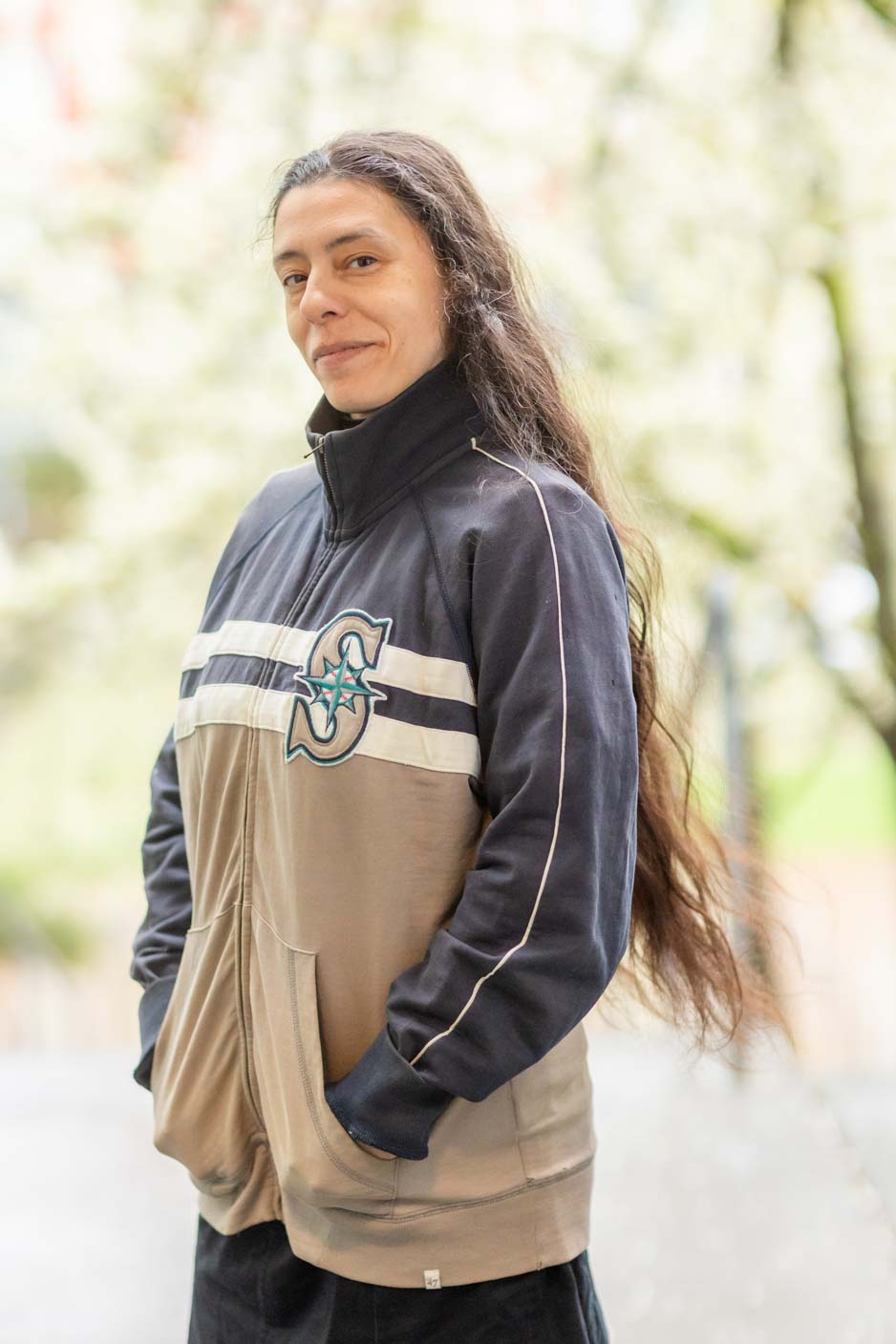

Policies
Seattle is a vibrant city full of opportunities–but we have been pricing people out of our city and denying them those opportunities for years. With rent, housing costs, and property taxes all rising, the number of Seattleites finding themselves without shelter continues to climb. As a candidate committed to the future of our city, I recognize the urgency not only in providing immediate relief for the unhoused but also in addressing the root causes of our housing crisis. Seattle is a growing city; if we do not act now to address both the symptoms and root causes of our housing crisis, we will perpetuate the cycle of displacement that has fractured our communities and spilled into our streets.
Policies:
- We can look to other cities who have had successes–New York’s guaranteed housing/right to shelter has proven massively successful in getting people off the street and giving them access to services. Seattle temporarily did something similar during lockdown. Formalizing and streamlining this program would get people off the streets and save money on sweeps that do nothing but shuffle unhoused people around the city.
- Pass I-137, the House Our Neighbors initiative to fund social housing. Funded by progressive revenue, I-137 places no burden on renters or homeowners and will increase the supply of housing, stabilizing rent costs and creating stable, long-term housing for people of all income levels.
- Create an Office of Renters Standards to protect tenants and improve enforcement and clarity on renters and landlord rights. This will make renting a smoother process for both renters and landlords, as well as protect one from the abuses of the other.
- Create a formal system of encampment approval, partnered with housing providers, and in compliance with right-to-shelter agreements. Provide sanitation services and address fire hazards to ensure community health is not being negatively impacted by encampments that cannot be moved.
- Change zoning laws to increase the housing supply. Building complete neighborhoods with all types of housing and essential services like transit, grocers, and small businesses will open up thousands of lots for potential development and massively increase our housing supply, leaving us with room to grow in the coming decades.
Public Safety is at the top of many Seattleites’ minds. Concerns abound about our safety, from car break-ins to harassment, from public transit riding to walking or driving, as well as interactions with law enforcement—It’s clear that Seattle needs to be safer. To make that happen, we need to interact with people on a human level to address their needs and implement tried and tested solutions to our problems.
Policies:
- Invest in the top-of-class LEAD and CARE programs to break cycles of incarceration while still addressing ongoing harm now. These programs are proven to be some of the most effective in the nation, and by partnering with King County’s new behavioral health centers, we can make meaningful progress in reducing overdoses and behavioral health crises.
- Approve the Solidarity Budget. Reducing desperation reduces crime and improves everyone’s lives. In this sense, housing and public safety are interlinked and cannot be entirely separated from each other. Tackling our public safety issues must mean addressing our housing crises and vice versa.
- Similarly, we cannot separate the public safety conversation from transit and infrastructure. Washington saw 788 fatal vehicle crashes last year and is on track to hit 800 in 2024. Seattle saw an estimated 260 crashes resulting in death or serious injury last year. We must right-size our infrastructure, protect bicycle lanes, and finish constructing sidewalks to ensure pedestrian safety.
- We must invest in community programs and youth programs to interrupt cycles of violence and keep schools safe and gun-free. This includes investing further into programs like Community Pathways to perform community outreach tailored to each community’s needs and circumstances.
Convenient, effective public transit is the lifeblood of a modern city. Not only does it cut down on car emissions and make our cities more climate-friendly, it also binds our neighborhoods together, providing access to opportunities for those who don’t or cannot drive. We must increase access to basics, like the sidewalks sorely needed in North Seattle and the Southend. We can create vibrant communities where people can walk, bike, ride, or roll anywhere they need to go.
Policies:
- Work to implement the Seattle Subway map to truly bind the city and region together. This will massively reduce traffic congestion, carbon emissions, finally build East-West transit, and strengthen our partnerships with nearby cities.
- Complete our bike lanes and fill in gaps: bikes being forced to weave in and out of traffic as their protected lane ends and restarts creates danger for everyone involved.
- Address the health of our roads, fix potholes, and right-size our infrastructure. This means maintaining our thoroughfares and pedestrianizing our streets where desired by local communities.
- Use engineering techniques to slow cars down and lessen the severity of collisions in the city. This means planting trees to obscure sightlines on long thoroughfares; narrowing lanes—where it is safe to do so—to discourage reckless driving; and fully protecting pedestrians and cyclists from cars.
Third spaces are the core of our communities and city. They attract tourists, contribute to a revitalized downtown that doesn’t require a mandate to return to the office, and beautify the city to make it somewhere people want to live. Neglecting our public spaces tangibly damages our communities, culture, and environment. We need to change this.
Policies:
- Work with communities and neighborhoods to create central, walkable spaces in the core of every neighborhood. This works in conjunction with rezoning to allow for small businesses and restaurants to open up near these spaces. Combined with light rail stations, these would be spaces interconnected across the city and available to all to enjoy.
- Protect our existing greenspace and expand where possible to maintain Seattle’s character as a green city. Communal green spaces allow everyone to celebrate, exercise, picnic, and enjoy the outdoors we love. They’re good for both us and the environment.
- Keep these spaces safe and accessible for youth and families to participate in the culture of the city and their communities. Sanitation services and public safety plans must be in place, as well as transit networks so that these places remain accessible to those without cars.
- Invest in community centers, sports fields, and libraries as third spaces where people can gather and be constructive in multiple ways according to desires and needs.
- Support Seattle’s arts community by promoting local artists in community spaces. This works twofold: It bolsters the local arts community and promotes cultural events to represent and highlight the diverse communities in Seattle.
A core part of a community is that we can lean on each other. Our city should not be any different, and yet for so many, childcare, eldercare, and professional development are beyond their means. Seattle can do so much more to expand access to these services by partnering with the private sector, state, and county to push for investment in these industries.
Policies:
- Offer universal access to childcare for pre-elementary school kids, or partner with childcare providers to use vouchers to pay for childcare. Alternatively, a tax credit on money spent on childcare to remove the burden from those who cannot afford to spend an average of $13,000 a year for childcare while they are at work.
- Ensure ADA compliance and expand transit to ensure people with disabilities are able to traverse the city and access opportunities wherever they are. This includes building sidewalks, ensuring building ramps, and even building wheelchair-accessible homes.
- Work with King County to build a more comprehensive strategy for attracting and cultivating a thriving behavioral health industry. We can partner with providers to offer apprenticeships and other pathways to working in the industry, as well as protect workers’ rights to create a sustainable industry where no skilled worker feels burnt out.
Cities have a key role to play in combatting climate change. Seattle, and the Pacific Northwest in general, is famous for its natural beauty, and we are not immune to the effects of climate change. We have to put in the work to keep our ecosystems healthy; not just for our own sakes, but for future generations as well.
Policies:
- Reducing car emissions, which make up over 80% of Seattle’s carbon emissions, is a priority. The plan to do so is further elaborated on in the Transit section of this site.
- Electrify our transit system, and ensure our electricity is coming from sustainable sources. Work with the state to promote green energy sources.
- Ensure we are using water sustainably and partnering with our Indigenous communities to learn from how they have used water sustainably for thousands of years.
- Invest in up-to-date recycling and waste disposal treatment facilities to reuse as much material as possible.
- Plant more trees along roadsides and thoroughfares, as well as expand greenways and greenbelts to areas of Seattle which do not have ready access to them, especially down south.
Washington State’s tax system has consistently been rated the #1 most regressive and least equitable in the nation. (https://itep.org/whopays/) “While income taxes make it relatively easy for people to estimate how much they are paying, sales and excise taxes tend to be paid in small amounts from day to day, obscuring an individual’s total tax bill.” -From TRU Revenue Options Report.
As our city confronts a significant $200 million deficit, we understand the urgency of finding viable solutions without sacrificing the welfare of our residents. We should not be raising revenue via property taxes, which are regressive and overly burden those who have little to give; instead, prioritize fairness and equity by ensuring that the tax burden is shared and our city can thrive.
First, let’s make sure we are spending our money wisely with what we already have. Taking a fine-toothed comb through the city budget to ensure money is being spent on effective programs is a priority, and while we won’t find $200 million dollars to spare in the budget, trimming some inefficiencies will lower the amount of revenue that needs to be raised.
It’s been well documented by two Progressive Revenue Task Forces since 2017: We must be more active in pursuing all the options at the table. Whether it is an estate tax, a vacancy tax, a rental income tax, or just flat out increasing JumpStart—we must raise more to serve the residents who make our communities work.
With a hostile US Supreme Court and workers’ rights to organize facing attacks from all sides, it’s important to fight for worker protections and actively empower unions to organize. Unions are vital parts of our communities, and we must treat unions as partners and stakeholders rather than obstacles in the workplace.
Policies:
- All city contracts and projects must be made with union workers or firms that use union labor.
- Encourage and promote Community Workforce Agreements to encourage local hiring and competitive wages.
- Work with unions to create strong apprenticeship programs and opportunities that are linked to community colleges and high schools, as well as to those looking to change careers.
- Advocate for and defend workers right to organize and strike.
